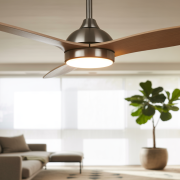Living in the great outdoors isn’t just about spending time with family and friends—it’s also about relaxing, enjoying nature, and taking advantage of all the benefits it has to offer. If you want to keep your outdoor space eco-friendly while still giving it that rustic and personal charm, there are a lot of ways you can do so. Let’s take a look at some of them:
Collect rainwater
Collecting rainwater can be an effective way to create a sustainable and eco-friendly garden space. With the right setup, you can harvest rainwater to help reduce your environmental impact and save money on water bills. Additionally, rainwater is an excellent source of free and natural irrigation for your plants.
For harvesting rainwater, you can install a rain barrel or cistern to collect and store water from your roof or gutters. Consider adding a filtration system to your rain barrel to ensure your plants are getting clean, contaminant-free water.
Once you have your rain barrel or cistern set up, you can also install a drip irrigation system to ensure the rainwater is distributed evenly throughout your garden. This system is often more efficient than using a sprinkler or watering can, and you can use it to water your plants regardless of dry weather conditions.
Choose native plants
Native plants are an important part of creating an eco-friendly garden space. They require less water and maintenance than imported plants, reducing your environmental impact and footprint.
They are also better at adapting to your local climate, meaning they are more likely to survive without the use of supplements or fertilisers.
Native plants also attract local wildlife, such as butterflies and birds, providing a quirky and entertaining addition to your outdoor space. Besides, they also offer a unique way to liven up your outdoor space, as they are not typically found at most garden centres.
Create a compost pile
Creating a compost pile is a great way to reduce your food waste at home. It is an easy, natural way to recycle everyday organic materials and turn them into a powerful fertiliser that helps to improve soil quality. It also helps to conserve water and reduce the need for chemical fertilisers.
Composting can create nutrient-rich soil that is ideal for growing garden vegetables, flowers, and other plants. The organic matter in compost helps to improve soil texture, aeration, and water retention, making it easier for plants to thrive. Not only is it a sustainable method of recycling organic material, but it also reduces the need for chemical fertilisers and suppresses plant diseases and pests.
Build a green roof
Creating a green roof can be an excellent way to create an eco-friendly garden space. Green roofs are made up of vegetation and soil that can help to insulate and protect the building from the elements and reduce energy consumption.
In addition, green roofs can filter and reduce air pollutants, absorbing stormwater that would otherwise overload city sewers. These roofs can also provide habitat for local wildlife and a tranquil space for homeowners to relax and enjoy the beauty of nature right at their doorstep.
Design with wildlife in mind
The presence of wildlife in a garden can bring a sense of joy and peace to the area and create a sanctuary for birds, mammals and even insects. Wildlife-friendly gardens can also offer natural pest control, as birds and other animals feed on pests that would otherwise damage plants.
When designing a garden that is wildlife-friendly, it’s a good idea to include features such as water features, nesting boxes, and dense vegetation. This will ensure that your garden provides an inviting and safe environment for wildlife while also providing a beautiful, green space to relax and enjoy.
Buy ethically sourced garden furniture
Buying ethically sourced garden furniture is also an ideal way to create a green and stylish outdoor living space without any compromise on comfort. You will be supporting businesses and companies that practice sustainability and use ethically sourced timber products for making garden furniture.
Furthermore, ethically sourced pieces use fewer toxins in the manufacturing process, resulting in fewer pollutants released into the environment.
As a result, investing in ethically sourced garden furniture not only looks great and reduces your environmental footprint, but it also gives you better peace of mind. If you’re interested in buying furniture from an environmentally conscious company, find out more here.
Final words
The six amazing ways outlined in this blog post are just a few of the many options available to homeowners who are looking to create an environmentally friendly outdoor space.
Other eco-friendly options include using mulch to retain moisture in the soil and reduce the need for frequent watering, as well as using pavers or gravel to create paths and patios that reduce the amount of lawn and other high-maintenance areas in your garden.
With a few simple changes, you can enjoy the beauty of your outdoor living space while also taking steps to ensure that you are being kind to the environment.













[…] tanks, you can easily find a trend that suits you. Of course, you may want to find an option to keep your outdoor space eco-friendly, and that’s possible, too. Just keep in mind that longevity is key in this investment. Trends […]